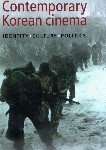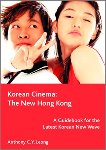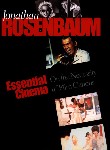![]()

![]()

(aka 'Jibeuro' or 'The Way Home')
directed by Jeong-hyang Lee
South Korea 2002
A pleasant if hollow experience, "The Way Home'
followed similar patterns to other Korean films I have seen recently. Starting
from an exaggerated premise of character portrayal; in this case a young, superlatively
spoilt and mean-spirited child overcomes his selfish demeanor... and we the
audience are left to say collectively sigh "ahhhhh" in the conclusion. Other modern Korean films I
have seen recently ('Peppermint Candy', 'Failan', 'Oasis' etc.) start very
similarly with an
unsavory male character that appears beyond redemption, and then quite expectantly we
are eventually given signs that they are not all that bad after all. This
usually occurs through interaction with a kindly innocent member of the opposite
sex. Although I enjoyed much of "Peppermint Candy" and "Failan", I am also
wondering when this trend will turn or how far it will extend while stuck in
this current groove. There were some positive moments to "The Way Home" and at
times reminded me of films by Chinese director Zhang Yimou. There were some
beautifully photographed scenes and the storyline involved a young child.
The plot was
simplistic with a limited narrative. Unfortunately though, unlike Zhang Yimou
films that leave a myriad of interpersonal interpretations, "The Way Home" was
quite empty having really no place for your thoughts to go in its conclusion. A
film should do more than extract sympathy from the audience and for myself,
personally, this hardly did at all. No, I don't recommend this film.
![]() out of
out of![]() .
.
Gary W. Tooze
Posters
 |
Reviews More Reviews DVD Reviews Official Site
Recommended Books on Korean Cinema (CLICK COVERS or TITLES for more information)
| NO COVER AVAILABLE |
 |
NO COVER AVAILABLE |
 |
NO COVER AVAILABLE |
 |
 |
NO COVER AVAILABLE | NO COVER AVAILABLE |
|
The Cinema Of Japan And Korea (24 Frames) by Justin Bowyer, Jinhee Choi |
Contemporary Korean Cinema : Culture,
Identity and Politics by Hyangjin Lee |
The History of Korean Cinema by Young-il Lee, Young-chol Choe |
Korean Cinema: The New Hong Kong by Anthony Leong |
Korean Film : History, Resistance, and Democratic
Imagination by Eungjun Min, Jinsook Joo, Han Ju Kwak |
The Remasculinization of Korean Cinema
(Asia-Pacific) by Kyung Hyun Kim |
Essential Cinema by Jonathan Rosenbaum |
Im Kwon-Taek: The Making of a Korean National Cinema
by David E. James, Kyung Hyun Kim, Myong-Hwa Chung |
Korean Cinema (Images of Asia) by Frances K. Gateward |
DVD Review: Paramount Home Video - Region 1 - NTSC
| DVD Box Cover |
|
CLICK to order from: NOTE: Purchases through DVDBeaver's links to Amazon help keep us afloat and advertisement free! |
| Distribution | Paramount Home Video Region 1 - NTSC | |
| Runtime | 1:28:12 | |
| Video |
1.78:1.00
Letterboxed WideScreen / anamorphic Average Bitrate: 5.85 mb/s NTSC 720x480 29.97 f/s |
|
| Bitrate: |
|
|
| Audio |
Korean (Dolby Digital 5.1) |
|
| Subtitles | English, None | |
| Features |
Release Information: Studio: Paramount Home Video Theatrical Release Date: April 5th, 2002
Aspect Ratio: Edition Details: DVD Release Date: May 6, 2003 |
|
| Comments: |
Not unlike my
interpretation of the film, this DVD looks great, but has no guts. The
image quality and sound are both excellent, but there are NO extras at
all... not even a filmography or some similar static text pages. Very
impressive photography is detailed well with excellent contrast levels
and adequately sharp detail. This is a good disc if you only want the
film. To appreciate this film, something else should have been included.
|
|
DVD Menus
 |
 |
Screen Captures
 |
 |
 |
 |
 |



















